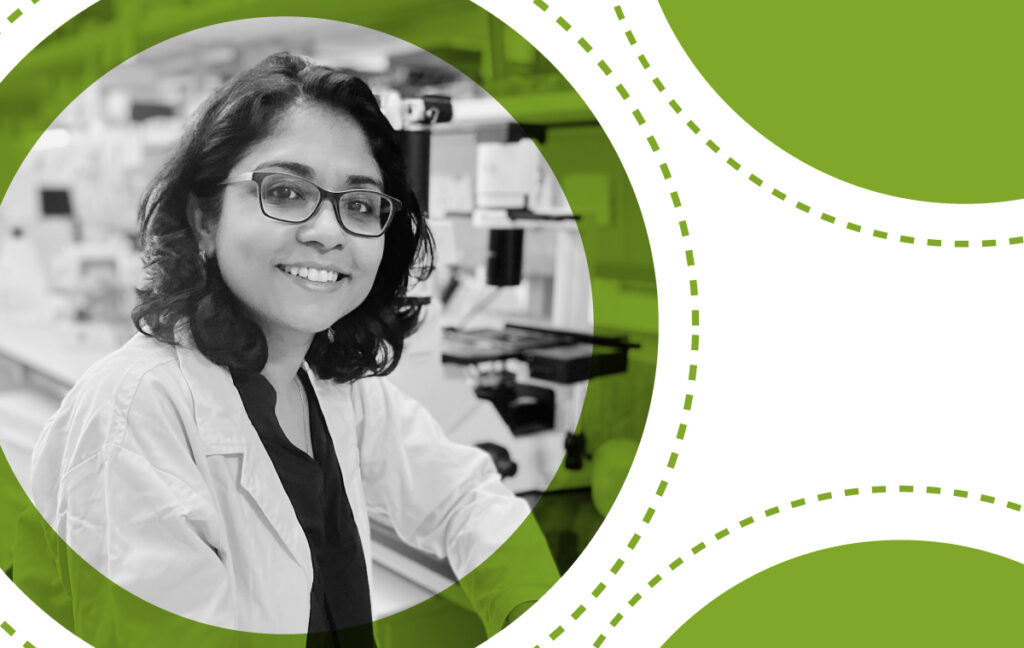15 December 2021 – How is the fate of the stem cells in the adult brain regulated in response to the local and systemic environment? How does it contribute to healthy and pathological conditions? These are some of the questions Hiyaa Ghosh, assistant professor at the National Centre for Biological Sciences in Bangalore, India, and new EMBO Global Investigator is intrigued by. She showed that the adult neural stem cells possess an inflammatory potential that, if not checked proactively, can lead to inflammation. Ghosh, who trained in the US, studied the transcription factor TCF4 in an immunological context as a postdoctoral researcher. She needed to carve out a niche away from the work of her principal investigator approximately when TCF4 had become a hot topic in neuroscience. “Using mouse genetics to probe cell-fate regulation was my strength. I definitely wanted to exploit that to ask questions others were not asking for TCF4 in the brain,” she explains.
Ghosh decided to return to India and change fields at the same time. She says: “Every time you shift a little bit, biology becomes more exciting because you have not thought about that part before. This has been the fuel that has not let me see any hurdle or feel anxiety about changing fields.” But she points out subfield barriers in neuroscience. To overcome them, she organized an EMBO Workshop on molecular neuroscience that brought the different communities together. Ghosh will use the opportunities of the EMBO Global Investigator Network to forge international collaborations and grow her network to introduce more interdisciplinarity in her approaches. “It means a lot to be able to interact with the larger scientific community across countries and continents”, she says.



